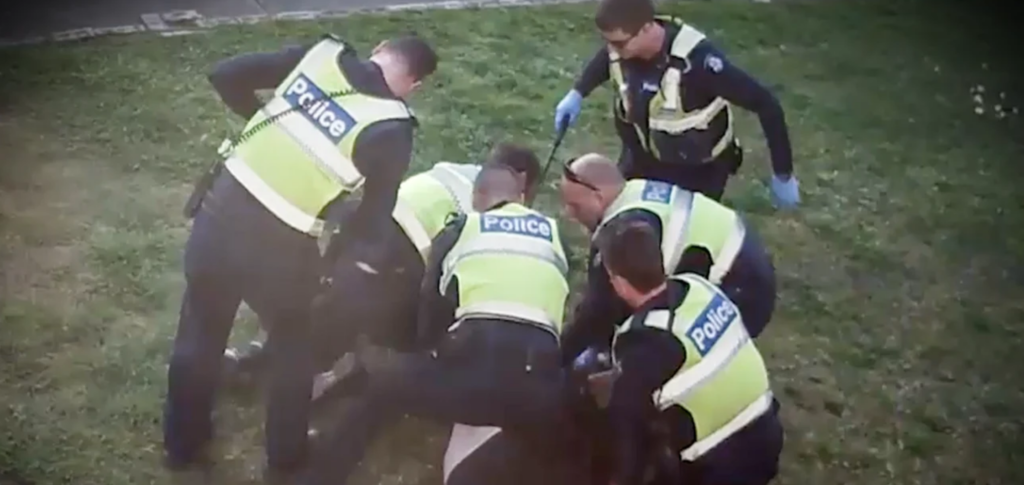Monday 8th July, 2019
Commission urged to avoid “piecemeal reforms” when it comes to the policing of mental health
The Royal Commission into Victoria’s Mental Health System has been urged to avoid “piecemeal reviews and more training updates” by police accountability advocates who say that the policing of people experiencing mental health issues is a vital area of system-wide reform. The submission by the Police Accountability Project has also called for an end to having police as first responders to mental health call outs.
The strongly worded submission highlights several cases of Victoria police using excessive force when dealing with people experiencing mental illness.
One such incident involved a police callout to the Preston home of an invalid pensioner ‘John’ during which he was pulled to the ground and sat upon by six officers, kicked, batoned, pepper sprayed at close range and then soaked with a garden hose. The incident was the subject of a groundbreaking investigative report by The Age / 7.30 and has resulted in multiple assault charges being laid against police involved.
People experiencing mental illness are massively over-represented in incidents involving both fatal and non-fatal police force.
‘Out of 48 fatalities in Victoria between November 1982 and February 2007, all but six of those killed had recorded histories of mental health problems’.[2] Similarly, ‘police were found to be two times more likely to use pepper spray on those who appeared mentally disordered, even after controlling for other situational and individual characteristics’.
The Police Accountability Project, now in its twelfth year, has called upon the Commission to look beyond piecemeal reforms, stating that previous reforms in this area which have focused only upon changes or additions to police training or operational procedures, protocols and guidelines have proved to be “manifestly inadequate” These reforms “misunderstand the nature and dynamic of police misconduct in the context of impunity.”
“Victorians and their families who have experienced police misconduct should not have to rely on coronial courts, civil litigation or Royal Commissions, with respect, to have their complaints properly investigated. An effective, properly resourced, independent police complaints body that can properly investigate and address police misconduct is required.”
In 2018 the joint parliamentary Independent Broad‑based Anti‑corruption Commission Committee conducted an extensive inquiry into the external oversight of police corruption and misconduct in Victoria. The Committee completed a comprehensive report, making 69 recommendations, including the establishment of an Police Corruption and Misconduct Division within IBAC, that are currently before the Victorian Parliament.[1]
The Committee found that people with disability or mental illness are more vulnerable to police misconduct and have ‘distinctive challenges to making complaints about police misconduct’. It noted with ‘particular concern’ that our Police and Accountability and Human Rights Clinic found that 48 per cent of our complainants reported having a disability, with 51 per cent having a mental illness.
The Royal Commission has been urged to look to this IBAC Committee report for system-wide ways to improve the policing of people experiencing mental illness.
The 22-page Police Accountability Project’s submission is available for download here (PDF).
The royal commission is due to deliver an interim report by November, with a final report due in October 2020.
[1] Victorian Parliament. Parliamentary Inquiry: Inquiry into the external oversight of police corruption and misconduct in Victoria. (2018)
Resources:
Police Accountability Project Submission to the RCVMHS (July 2019)
Parliamentary Inquiry: Inquiry into the external oversight of police corruption and misconduct in Victoria. (September 2018)
Beaten, abused, humiliated and filmed by Victoria Police, Nick McKenzie, The Age, 4 April, 2018





